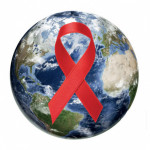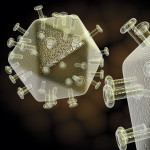Some disturbing news for treatment-experienced patients holding out for Myriad Genetics’ maturation inhibitor bevirimat: According to a study published online November 18 in AIDS, resistance to protease inhibitors (PIs) reduces the effectiveness of bevirimat in up to 45 percent of cases.
Maturation inhibitors work at the tail end of the HIV lifecycle, stopping newly formed HIV virions from becoming infectious. Unfortunately, naturally occurring changes (polymorphisms) in HIV’s Gag gene—which is involved in the maturation of the virus to make it infectious—reduce bevirimat’s effectiveness in about 40 percent of people living with HIV.
There is another possible chink in bevirimat’s armor. The drug attacks proteins in Gag that are close to those used by protease inhibitors. In turn, there has been some concern that mutations arising during protease inhibitor (PI) use might also cause changes in Gag that reduce the sensitivity of the virus to bevirimat.
To determine the impact of prior PI use on the utility of bevirimat, Jens Verheyen, MD, from the University of Cologne, and his colleagues tested virus samples from 484 people with HIV. Of those participants, 214 had taken HIV treatment in the past; 166 had resistance mutations for PIs; and 48 had resistance mutations to nucleoside reverse transcriptase inhibitors (NRTIs).
A significant number of virus samples from people with PI resistance showed reduced susceptibility to bevirimat. About 45 percent of PI-resistant virus samples also had mutations known to cause some degree of bevirimat resistance. People with three or more PI mutations were most likely to have virus that would not respond to bevirimat.
Reduced bevirimat susceptibility was far less likely in people who’ve never taken HIV treatment. About 30 percent of the samples had Gag mutations known to reduce bevirimat’s ability to control the virus.
Based on these results, the authors conclude it is likely that drug resistance testing will ultimately be needed before bevirimat can be used. Identifying the presence of mutations in the Gag gene, they say, will be critical to determining its likelihood of success.
Advertisement
Advertisement
Advertisement






Comments
Comments